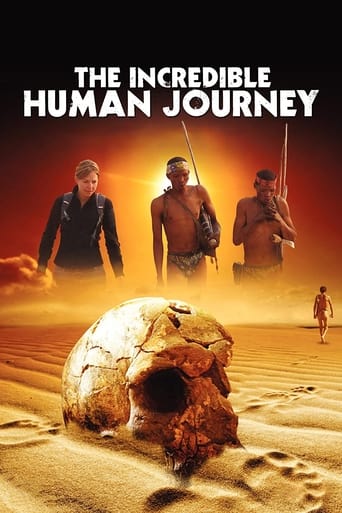José Pedro Gomes
It's modern, it's fresh, it doesn't have boring moments, but... it's too much assertive and does not take into account fresh and relevant possibilities.This documentary was made in 2009, new data was available in 2010. Neanderthals interbred after all with homo sapiens (conclusion by Neanderthal genome Project), and even so if the Chinese Homo Erectus indeed is not a direct ancestor of Chinese people, indeed as modern humans have in their genome traces of Neanderthal's, Asian people have also Denisovans' ancestry who share some similarities (teeth) with Homo Erectus. It's too focused and emphasized only on available data (at the time the documentary was made) and does not focus on other reasonable hypothesis. Not to say is self-centered on Alice Roberts's point of view. It abuses on a linear logic when the result of that logic excludes possibilities outside its own realm. The result could not be scientific, like it wasn't when Neanderthal-Sapiens interbreed hypothesis was excluded just because the majority didn't thought so.Although it's a fresh light palaeoanthropology documentary it has a biased point of view.
HanslH
My reference for BBC TV-docu is Simon Schama's a history of Britain that is so packed with information that you need to view it trice to fill all the holes left by former small lapses of concentration. The same can happen here but I'm afraid the lapses of concentration constitute dozing off from lack of input. For example 15 minutes I am looking at someone taking a walk in the heated rough to some sandpit were the oldest human remains were once found. Since the terrain may have altered 100% since then the net info is hardly above 0. I love the involvement of the in the footsteps effect from Michael Wood but this does nothing for me. The next 10 minutes I see a lady spending a night in the wild and seeing how scared she is. And what is the target age for this exactly? I hope the BBC prime interest for docu making is not going to be to please as many people as possible. Entertainment and infotainment are all around. I hope they keep making programs that offer a lot of information too. My minority vote perhaps.


